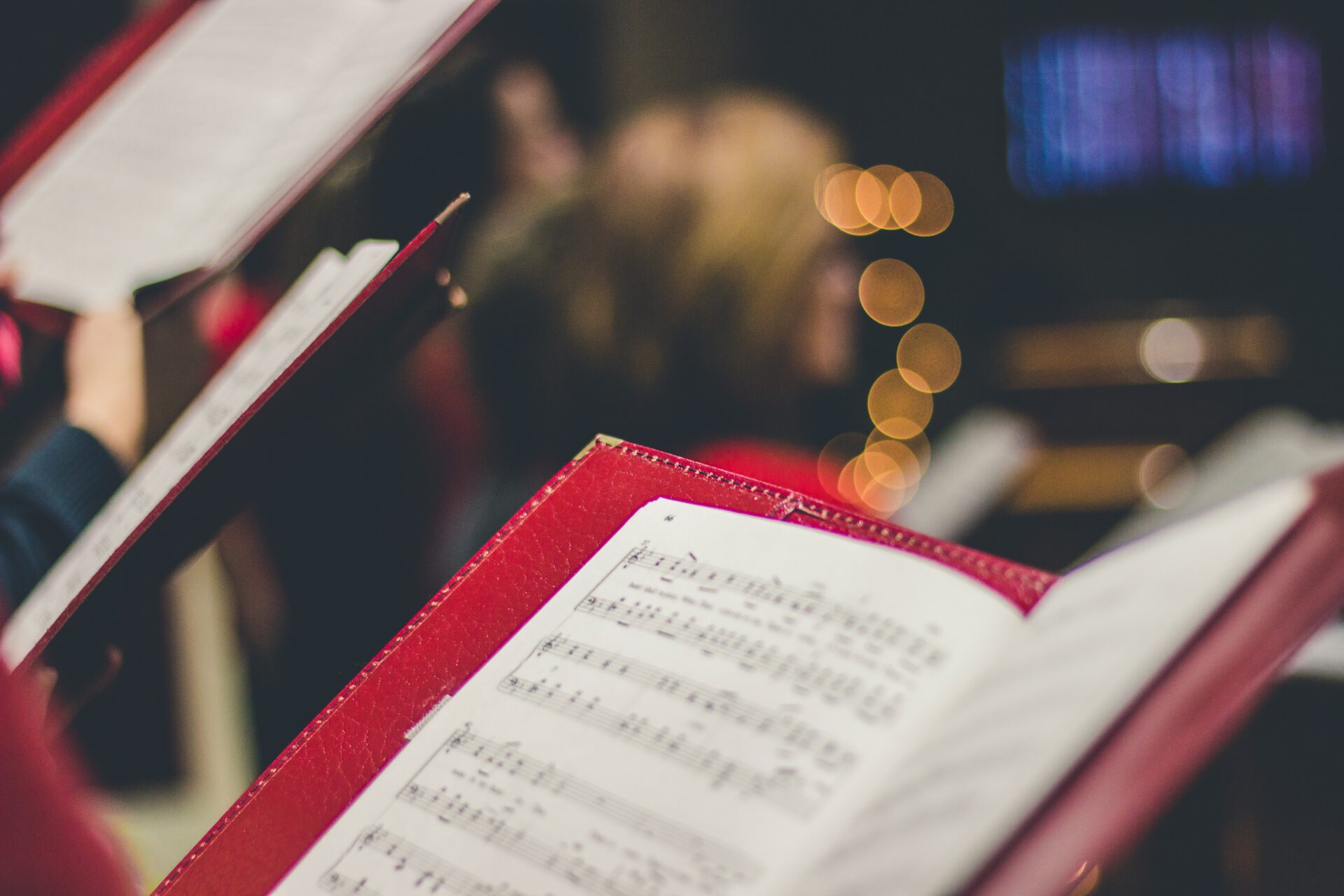
Close up of choir sheet music with blurred lights in the background.
Photo by David Beale on Unsplash
Singing again—in a new language
Pentecost was a time when the Holy Spirit came “like the rush of a violent wind.” People of many languages experienced the power of the Holy Spirit and heard about “God’s deeds of power” in their own language. (Acts 2:1-11)
The Greek word for spirit, pneuma, can also mean “wind” and “breath.” For those of us who are singers, the wind got knocked out of us at the beginning of the pandemic. No choir, no in-person singing lessons. For professionals, it was devastating. For amateur singers like me, it was still a blow. I sang with others every week and had several lessons a month. I experienced a terrible feeling of loss.
The return to singing with others has been more like a trickle than a violent wind. Some choirs still sing with masks. Many choirs are smaller. But what a joy to be together, making music again. The connection with others in singing, in church choirs and other choirs, is tangible, physical. You feel the breath of life as you sing—you can’t sing without breath support.
For me, it’s gone a step further in the Pentecost direction—to a new language. I’ve been singing in a German choir this year. It’s connected with the German American Society of Portland (Oregon). I’ve discovered there are German American clubs and choirs in many cities. When immigrants arrived, they joined the German organization and found friends and familiar language.
I don’t speak German, but I’m having a great time. The choir just restarted after Covid last fall, and people have drifted back. Now we have about 25 members of a wide variety of ages, from 20s to 80s. The oldest member has been singing in the choir since 1959, and this year is the choir’s 100th anniversary. It’s like a church choir in the longevity of members and attachment to the group’s history. The director, Owen Hofmann-Smith, sang with my daughter in a church choir when they were both in high school 20 years ago. Every week we remember birthdays and sing both American and German birthday songs. (Fun fact: in German culture, it’s bad luck to wish someone a happy birthday before their birthday.) Singing with native speakers sure helps! Sitting next to another soprano who was raised in Frankfurt has definitely improved my pronunciation.
Like many in church choirs that have resumed, I’ve rediscovered the joy of singing with other people through a local German choir. Singing together builds relationships. Some of these people have sung together for decades, and their friendships have lasted equally long.
Here’s what I’ve learned—and relearned—from this experience:
Invitations matter! I was invited by a colleague, and several of the other new members have come because someone invited them.
A challenge is good for the brain. Both my brain and my mouth get tired sometimes from the unfamiliar combinations of letters, but it’s stimulating. The many new ways of doing church we’ve all been forced to learn over the last few years—however unwillingly—have likewise been a challenge we’ve had to rise to. They may be beneficial for us in the long run.
Like many in church choirs that have resumed, I’ve rediscovered the joy of singing with other people. Singing together builds relationships. Some of these people have sung together for decades, and their friendships have lasted equally long.
As church activities continue to resume, may we celebrate the Pentecost joy of being together, and experience the wind of the Holy Spirit.
Rev. Margaret Marcuson helps ministers do their work without wearing out or burning out, through ministry coaching, presentations and online resources.
The views expressed are those of the author and not necessarily those of American Baptist Home Mission Societies.



